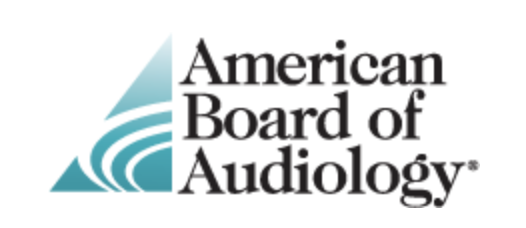
Certificate Holder—Audiology Preceptor (CH-AP)
CH-AP is an online self-study program that teaches preceptors how to facilitate an AuD student’s transition from novice clinician to competent independent professional. The CH-AP program helps ensure that each student receives standardized training and approach measuring performance from a standardized point of view.
-
- Review the CH-AP Participant Handbook (includes eligibility, fees, training curriculum information, etc.).
-
- Read the Assessment-Based Code of Ethics.
-
- Review the informational PowerPoint on the development of CH-AP.
Certificate Holder—Tinnitus Management (CH-TM)
CH-TM is a comprehensive tinnitus management education program providing essential information for assessing and managing patients with tinnitus or decreased sound tolerance. CH-TM is an assessment-based certificate program offered in a combination video and interactive online self-study program.
-
- Review the CH-TM Participant Handbook (includes eligibility, fees, training curriculum information, etc).
-
- Read the Assessment-Based Code of Ethics.
Module 1– Tinnitus Definitions & Theoretical Foundations, identifies the different types and characteristics of tinnitus, its prevalence in the US and globally, and different theories of its etiology.
Module 2 – Management of the Patient with Tinnitus, provides a snapshot of the experience of tinnitus, along with a broad synopsis of assessment approaches, intervention techniques, and practice management considerations.
Module 3 – Business Management Considerations, discusses the unique demands and business factors associated with integrating tinnitus and DST services into an audiology practice.
Module 4 – Audiological Evaluation of the Patient with Tinnitus, teaches how to assess the results of a comprehensive audiological evaluation as a basis for clinical decision-making for a patient with tinnitus.
Module 5 – Tinnitus Intervention Techniques reviews varied approaches that may be used as intervention for patients with tinnitus, including indications for use, benefits, and limitations of each technique.
Module 6 – Management Plan for the Patient with Tinnitus, teaches how to educate and collaborate with patients and other providers to develop a management plan for a patient with tinnitus.
Module 7 – Management of the Patient with Decreased Sound Tolerance summarizes the characteristics and prevalence of DST along with assessment approaches, treatment techniques, and practice management considerations for these patients
About the American Board of Audiology Certificate Programs
Assessment-based certificate programs build capacity and recognition of a specialty area of practice or a set of skills. They provide instruction and training (non-degree granting) and assess mastery of the intended learning outcomes.
Recent Posts
Two Fronts, One Goal: Securing Federal Loan Access for Audiology Students
The Academy is pursuing a two-pronged strategy through Congress and the Department of Education to protect federal student loan access for AuD students. Both pathways…
Leveling the Playing Field at AAA 2026
Wednesday, April 22 | 12:30–2:00 pm Earn 0.15 CEUs Concussion care is no longer a single-discipline effort. As research continues to reveal concussion as a…
How to Get Patient Referrals through Your ABA Certification
Did you know that ABA publishes directories for each certification and certificate program on its website? Credential holders are sorted alphabetically by country, and then…


